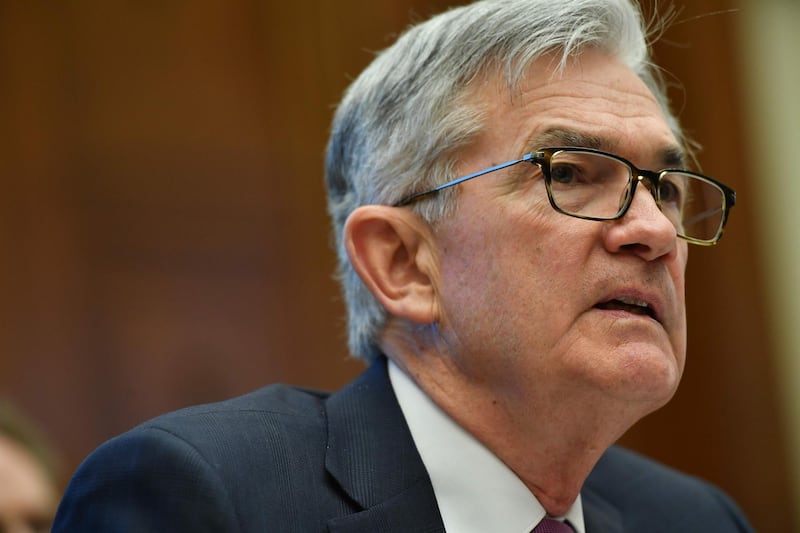The US Federal Reserve will cut interest rates by 0.5 per cent in its first emergency rate cut since the Great Recession in response to the spreading coronavirus.
Fed chair Jerome Powell said on Tuesday that the coronavirus “poses evolving risks to economic activity".
The Fed's statement also said that it is “closely monitoring developments”.
Markets initially reacted positively to the announcements. The Dow Jones index, which had fallen sharply after the opening bell, swung almost 700 points into positive territory after the Fed announcement, but later swung backwards towards the previous day's closing price at 7.22pm UAE time.
Finance ministers from the G7 group of countries had earlier pledged to use “all appropriate tools" to deal with the spreading coronavirus but did not announce any immediate actions.
The G7 had said on Tuesday that it was “ready to take actions, including fiscal measures where appropriate, to aid in the response to the virus and support the economy”.
The joint statement from the United States, Japan, Germany, Britain, France, Italy and Canada was issued after an emergency conference call among the finance ministers and central bank presidents, led by US Treasury Secretary Steven Mnuchin and Federal Reserve chairman Jerome Powell.
The G7 has issued similar joint statements during periods of extreme market turmoil, such as the terrorist attacks on the World Trade Centre in September 2001 and the 2008 financial crisis.
Last week, the Dow plunged 14 per cent from recent highs, its worst week since the 2008 global financial crisis.
“Given the potential impacts of COVID-19 on global growth, we reaffirm our commitment to use all appropriate policy tools to achieve strong, sustainable growth and safeguard against downside risks,” the G7 said.
Global agencies have indicated this week that there will be a significant economic impact as the virus spreads.
On Monday, the Organisation for Economic Cooperation and Development said that the coronavirus, which was first detected in China but has now spread to 60 nations in Europe, the US, Latin America and other parts of Asia, could cause the world economy to shrink this quarter for the first time since the international financial crisis more than a decade ago.
The OECD lowered its forecasts for global growth in 2020 by half a percentage point, to 2.4 per cent but said the figure could go as low as 1.5 per cent if the outbreak is sustained and widespread.
Economists at Capital Economics said on Tuesday they were lowering their US GDP forecast to 1.8 per cent this year, down from 2 per cent previously, with an expectation that the Fed will cut rates by 0.5 per cent by the middle of the year.
In an effort to calm markets that had become turbulent as the virus spread, Mr Powell had said on Friday that the Fed will “use our tools" to support the economy, a strong signal that the central bank was prepared to resume interest rate cuts if the US economy is threatened by the spread of the virus.







